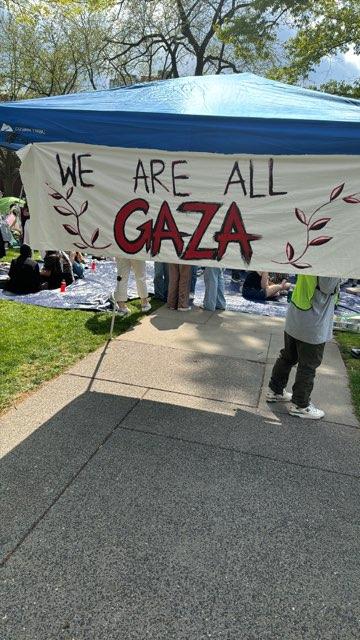Part IV
With one of the darkest episodes in our history, the “Sin of the Golden Calf,” still fresh in my mind, I will fast forward from the lessons on forgiveness gleaned from the dramatic encounter between Yaakov and Eisav, to Parshat Ki Tisah. Many of us can relate to the experience of sharing our views on books, movies, lectures or shiurim with others, and expect differences in opinions on their meaning or the lessons they teach. Thus, that which is considered exceptional by one can be viewed as a waste of time by another. At times, we may question how we could have missed some important points, while in other situations, we ask ourselves: “What were they thinking?” In the worst-case scenario, opposing views on “hot” topics such as religious views, or politics, can even lead to outright feuds among relatives and close friends. In this article we will learn how perspectives in all areas of life are shaped by our past experiences, as well as the context within which we find ourselves; and it is for this very reason that opening one’s “heart and mind,” by respecting and acknowledging the viewpoint of the other, is far more important than being stuck on feeling “right.”
In Parshat Ki Sisa, we were challenged by the mystery of how it came to be that in the wake of the great miracles, of the Exodus, the Splitting of the Sea and the gifting of the Torah, Benei Yisroel appeared to suffer a lapse in their “emunah.” There are many interpretations of the events that surrounded Chait Ha’egel, and I tend to shy away from those that speak to “shame” and “blame.” In addition, I find it simplistic to narrow down the variables to a lack of “emunah” or the nation’s succumbing to temptation of idolatry. Instead, the explanations that resonate for me are those that take into account the context within which this perceived transgression occurred. Thus, given the reality that the young nation had declined to the 49th level of tumah when Hashem exiled them from Mitzrayim, it is clear that they were still at the “infancy” stage of spiritual development.
A well-known psycho-educational principle reflects the idea that young children, and even many adults, have difficulty connecting with the abstract; therefore, when introducing theoretical concepts, it is helpful to begin with concrete material before moving on to the abstract. Given Benei Yisroel’s regressed state, it is fairly easy to understand that the young nation found it difficult to connect with God. Viewed from this perspective, Moshe, the appointed intermediary, served as Hashem’s physical representation, and this helped them sustain their connection with Him. Moreover, it is likely that even the expected 40 days of separation from Moshe was a stretch for them. However, when they believed it went beyond the anticipated time period, they completely “lost it.” Thus, much like an infant or small child, who relies on such temporary “transitional objects” as a “pacie” or “blankie” in the absence of a parent, they needed a temporary replacement for Moshe; and this is exactly what they imagined they would find in the “Golden Calf.” Moshe, the master of empathy, understood the situation they found themselves in and was moved, not only to advocate for Hashem’s forgiveness, but to also hold himself somewhat accountable for not taking the time to prepare them adequately for his absence; this also accounts for Moshe’s asking God to erase him from the Torah. As the story unfolds, we find that Hashem was receptive to Moshe’s argument, and rescinded his initial threat of “wiping out” the nation.
Rabbi Yaakov Barber, in a shiur on Chabad.org, deepens our understanding of what prompted the “infant” nation to construct the Eigel. He explains that the “fundamental” mistake made by B’nei Yisroel was that they wanted to serve God on their terms. This, I believe, is because they had not yet learned the importance of “reciprocity,” as well as “differentiation,” in all relationships; as a result, they failed to realize that while we share many traits, needs and values with the “others” in our lives, we must always be mindful of what they are asking of us. Thus, even though it appeared that they accepted His Torah unconditionally, with the words, “Na’aseh V’nishmah—We will do and we will listen,” it seems that they did not fully understand that the conditions of this relationship meant agreement with all of the 613 requests He made of them, not just those that suited them. Through Hashem’s response, we can all learn what it truly means to be in a relationship with all of those we bring into our lives.
This critical step in relationship building, the ability to acknowledge, understand and respect the perspective from which another is moved to respond to circumstances or challenges, is such an important lesson that we can use in our everyday interactions with our spouses, parents, children, siblings and friends. Moreover, Hashem and Moshe, who had every right to feel disappointed, betrayed, unforgiving and vengeful towards the nation, not only held their feelings in abeyance but also validated and acknowledged where the young nation was coming from, and offered them the very special gift of “feeling understood, how can we do any less?” If we just imagine where we would be today if God and Moshe responded from the vantage point of “judgment” and “revenge,” rather than “mercy” and “forgiveness,” perhaps we would find it easier to act in kind. Indeed, passing on this precious gift of being understood to another is a gift that can impact for a lifetime the lucky recipient.
By Dr. Renee Nussbaum
Renee Nussbaum is a practicing psychoanalyst, with special training in Imago Relational Therapy. She can be reached at: [email protected].











